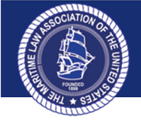Injured Offshore Well Worker
A federal appeals court recently held that maritime law applies to a case involving an injured offshore well worker. The question in the case was whether Louisiana law or maritime law should be used to interpret the contract that resulted in the injury.
Background
This lawsuit involved a contract to perform flow-back services to improve the performance of an offshore natural gas well. (The flow-back process dislodges solid objects from inside the well.) In 2005, Apache Corporation, an oil and gas exploration and production company, entered into a master services contract with Specialty Rental Tools & Supply (STS). The contract didn’t include specific tasks to be performed but instead contemplated future services to be performed under subsequent work orders.
In 2011, Apache hired STS to perform flow-back services on its offshore well. These services were arranged pursuant to an oral, and not a written, work order. The STS employees who performed the flow-back operation determined that they needed additional equipment, including a crane barge for some heavy lifting. Apache arranged for Larry Doiron, Inc. (LDI) to provide the crane barge. LDI is part of Apache’s company group (and covered by the terms of the master services contract). Robert Jackson was the crane operator.
Even with the crane, the STS employees were unable to complete the flow-back operation. And then the accident happened: STS employee Peter Savoie was injured when the crane knocked him off balance and he fell eight feet onto the deck of the barge. Savoie claimed that he had begun “rigging down” and asked Jackson to lower the crane when the crane knocked him down.
The Lawsuit
Savoie brought a personal injury lawsuit against LDI and Jackson, who argued that they should be indemnified under the master services contract. STS argued that the indemnity provision should be construed under Louisiana law and the provision is unenforceable under the Louisiana Oilfield Indemnity Act. A federal district court ruled in favor of LDI and Jackson, and STS appealed to the U.S. Court of Appeals for the Fifth Circuit.
The issue was whether Louisiana law or maritime law should apply to the oral work order. The Fifth Circuit held that the contract was maritime in nature and therefore that maritime law should apply.
Why Is This Case Important to Me?
Applying federal maritime law to offshore injury cases instead of Louisiana (or another state’s) law allows for uniform resolution of maritime cases. In other words, courts aren’t applying one standard in one case and a different standard in another. Keep in mind that different federal laws will apply depending on the situation. Yours might be a Jones Act case, a Longshore and Harbor Workers’ Compensation Act case or a general maritime law case.
But regardless of what law applies to your case — or who foots the bill — the important thing for someone who suffers an offshore injury is that they receive the compensation that they deserve.
Contact Us Today
Contact the Patrick Yancey Law Firm today if you are involved in an offshore accident. We will help you receive the compensation that you deserve.









